第3章 I(2)
Most of the men wore frock-coats and top-hats--the things that we in India put on at a wedding-break-fast,if we possess them--but they all spat.They spat on principle.The spittoons were on the staircases,in each bedroom--yea,and in chambers even more sacred than these.They chased one into retirement,but they blossomed in chiefest splendor round the bar,and they were all used,every reeking one of them.
Just before I began to feel deathly sick another reporter grappled me.What he wanted to know was the precise area of India in square miles.I referred him to Whittaker.He had never heard of Whittaker.He wanted it from my own mouth,and Iwould not tell him.Then he swerved off,just like the other man,to details of journalism in our own country.I ventured to suggest that the interior economy of a paper most concerned the people who worked it.
"That's the very thing that interests us,"he said."Have you got reporters anything like our reporters on Indian newspapers?""We have not,"I said,and suppressed the "thank God"rising to my lips.
"Why haven't you?"said he.
"Because they would die,"I said.
It was exactly like talking to a child--a very rude little child.
He would begin almost every sentence with,"Now tell me something about India,"and would turn aimlessly from one question to the other without the least continuity.I was not angry,but keenly interested.The man was a revelation to me.To his questions Ire-turned answers mendacious and evasive.After all,it really did not matter what I said.He could not understand.I can only hope and pray that none of the readers of the "Pioneer"will ever see that portentous interview.The man made me out to be an idiot several sizes more drivelling than my destiny intended,and the rankness of his ignorance managed to distort the few poor facts with which I supplied him into large and elaborate lies.
Then,thought I,"the matter of American journalism shall be looked into later on.At present I will enjoy myself."No man rose to tell me what were the lions of the place.No one volunteered any sort of conveyance.I was absolutely alone in this big city of white folk.By instinct I sought refreshment,and came upon a bar-room full of bad Salon pictures in which men with hats on the backs of their heads were wolfing food from a counter.It was the institution of the "free lunch"I had struck.
You paid for a drink and got as much as you wanted to eat.For something less than a rupee a day a man can feed himself sumptuously in San Francisco,even though he be a bankrupt.
Remember this if ever you are stranded in these parts.
Later I began a vast but unsystematic exploration of the streets.
I asked for no names.It was enough that the pavements were full of white men and women,the streets clanging with traffic,and that the restful roar of a great city rang in my ears.The cable cars glided to all points of the compass at once.I took them one by one till I could go no further.San Francisco has been pitched down on the sand bunkers of the Bikaneer desert.About one fourth of it is ground reclaimed from the sea--any old-timers will tell you all about that.The remainder is just ragged,unthrifty sand hills,to-day pegged down by houses.
From an English point of view there has not been the least attempt at grading those hills,and indeed you might as well try to grade the hillocks of Sind.The cable cars have for all practical purposes made San Francisco a dead level.They take no count of rise or fall,but slide equably on their appointed courses from one end to the other of a six-mile street.They turn corners almost at right angles,cross other lines,and for aught I know may run up the sides of houses.There is no visible agency of their flight,but once in awhile you shall pass a five-storied building humming with machinery that winds up an everlasting wire cable,and the initiated will tell you that here is the mechanism.I gave up asking questions.If it pleases Providence to make a car run up and down a slit in the ground for many miles,and if for twopence halfpenny I can ride in that car,why shall I seek the reasons of the miracle?Rather let me look out of the windows till the shops give place to thousands and thousands of little houses made of wood (to imitate stone),each house just big enough for a man and his family.Let me watch the people in the cars and try to find out in what manner they differ from us,their ancestors.
It grieves me now that I cursed them (in the matter of book piracy),because I perceived that my curse is working and that their speech is be-coming a horror already.They delude them-selves into the belief that they talk English--the English--and I have already been pitied for speaking with "an English accent."The man who pitied me spoke,so far as I was concerned,the language of thieves.And they all do.Where we put the accent forward they throw it back,and vice versa where we give the long "a"they use the short,and words so simple as to be past mistaking they pronounce somewhere up in the dome of their heads.How do these things happen?
Oliver Wendell Holmes says that the Yankee school-marm,the cider and the salt codfish of the Eastern States,are responsible for what he calls a nasal accent.I know better.They stole books from across the water without paying for 'em,and the snort of delight was fixed in their nostrils forever by a just Providence.
That is why they talk a foreign tongue to-day.
"Cats is dogs,and rabbits is dogs,and so's parrots.But this 'ere tortoise is an insect,so there ain't no charge,"as the old porter said.